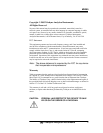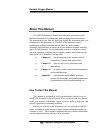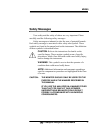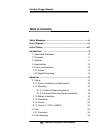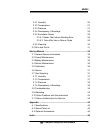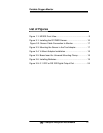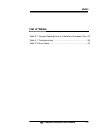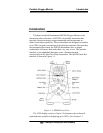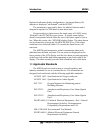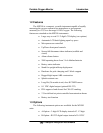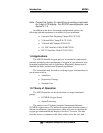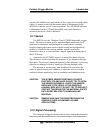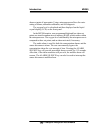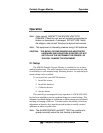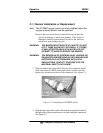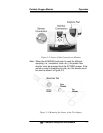
Introduction MX300
Teledyne Analytical Instruments 10
Options for alternate display configuration). An integral battery life
indicator is displayed “on demand” with the MX300.
The instrument is powered by three AA alkaline batteries and is
designed to operate for 2000 hours in non-alarm state.
Oxygen analysis is linear across the single range of 0-100% using
Teledyne’s class R17MED oxygen sensor. A unique sensor failure
alarm is incorporated which warns the user if the sensor signal is lost or
low. When this occurs, the √ SENSOR display flashes. The alarm buzzer
can be silenced by pressing the ALARM SILENCE key. If the alarm
condition is not corrected within 115 seconds the alarm buzzer will
reactivate.
The MX300 unit incorporates a dual concentration alarm with
individual user-defined set points. The set points are displayed on the
lower portion of the LCD display with the low alarm set point appearing
at the lower left and the high alarm appearing on the lower right of the
display. The alarm circuitry provides both an audible and visual alarm.
1.1 Applicable Standards
The MX300 units are built to meet or exceed regulatory and
industry standards for use as a medical device. The instruments are
designed, built and tested with the following applicable standards:
ASTM F 1462: Specifications for Oxygen Analyzers
ASTM F 1463: Specifications for Alarm Signals
ISO 7767: Oxygen Monitors for Monitoring patient
Breathing Mixtures
ISO 9703-1: Anesthesia and Respiratory Care Alarm Signals
Part 1
ISO 9703-2: Anesthesia and Respiratory Care Alarm Signals
Part 2
EN/IEC 60601-1-2: Medical Electrical Equipment—Part 1 General
Requirements for Safety. Electromagnetic
Compatibility Requirements and Test
MIL-STD-810E: Environmental Test Methods
EN/IEC 60601-1: Medical Electrical Equipment-General
Requirements for Safety



